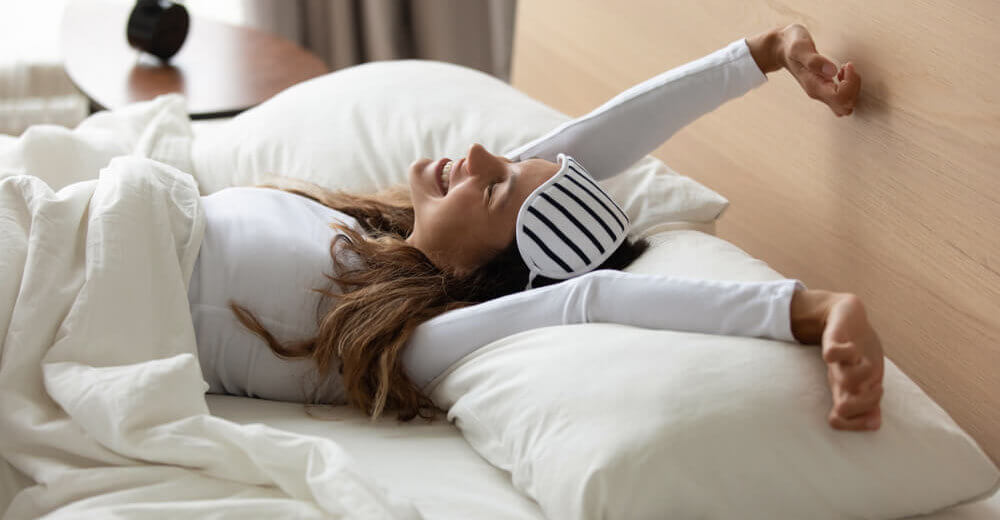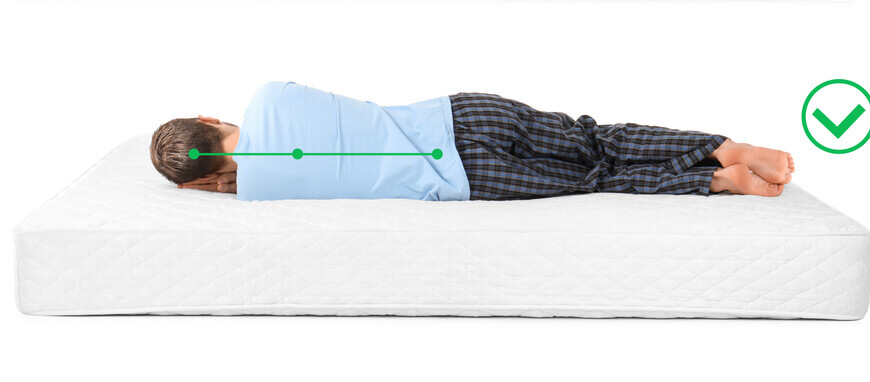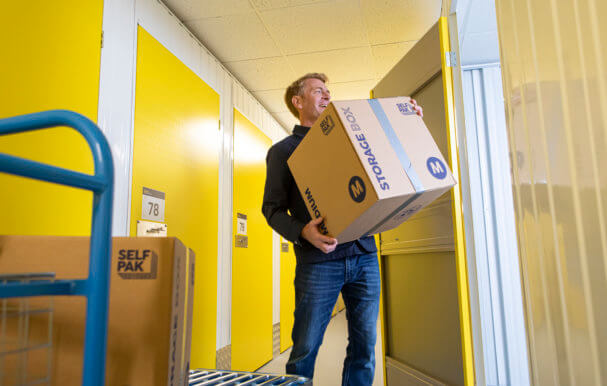Tips on improving your sleep

Making sure you work on improving your sleep is extremely important for our general physical and mental health. Sleeping helps to refuel our energy since the vital chemicals of glycogen and adenosine get restored while we sleep.
Medical professionals talk non-stop about the benefits of improving your sleep cycle. The NHS recommends that adults get at least 7 hours of sleep each night, 6-12-year-old children 9-12 hours, and children under 6 should sleep for at least 10 hours at night (not including daytime naps).
We all know just how essential working on improving your sleep is, and March 17th 2023 is World Sleep Day! With this special day in mind, we at Now Storage have provided you with some helpful tips on improving your sleep.
Get into a good sleep routine
Get yourself into good sleeping habits you can maintain. Be consistent and make sure you go to bed and get up at the same time every night, even on weekends!
Do you work night shifts? If so, it’s essential to try and get yourself into a healthy sleep routine and enjoy plenty of hours of rest to recharge your batteries.

Take control of your daily time management
Time management can be challenging, especially if you’ve got young children to look after or have a demanding job. You may ask yourself where all the time’s gone when you finally get the chance to hop into bed.
The solution is taking control and monitoring and recording how you spend your time each day. Plan ahead, make schedules and monitor your time better by using digital or paper calendars, writing daily notes, or setting timers and alarms on your phone.
Your ability to time manage will have a direct impact on how much sleep you manage to get. You don’t want poor organisation around time management to cause you to go to sleep too late every night.
So, take control of managing your time properly and you will reap the benefits by improving your sleep!
Ensure your bedroom is a quiet and relaxing space
Many of us are light sleepers, and the simplest noise can make us spring out of bed. Therefore, ensuring you turn your bedroom into a restful environment that’s as quiet and relaxing as possible is vital.
You could set a relaxing tone by playing peaceful low-intensity music, such as orchestral or classical tunes at a low volume while you relax in bed before going off to sleep.
But what do you do if you live on a busy main road where lorries, cars, and motorcycles are constantly whizzing past your home? If so, using noise-cancelling earbuds could be a sensible idea. Alternatively, you could install soundproofing panels into your bedroom walls to try and block out some of the noise.
Want to improve the duration and quality of your sleep? We suggest making sure your bedroom is as quiet and relaxing as it can be.

Keep the place dark
Keeping your bedroom space nice and dark is also key to improving your sleep. Why is this so? Well, in order for you to get a good night’s sleep, your brain needs to have high levels of melatonin. In response to darkness, the pineal gland in the brain starts to initiate the production of melatonin, but exposure to light slows and halts that production.
Practical solutions to block your exposure to light in your bedroom include getting reliable blackout blinds fitted, or wearing an eye mask.
Manage your anxieties
Sleep duration and quality are closely connected to our mood and mental health. Sleep deprivation leads to low moods and the inability to control your emotions.
We all have anxieties and worries in our lives in one way or another, and taking positive steps to manage them will help to improve your sleep. So, try switching off and relaxing at night and putting aside your anxieties.
Don’t watch drama-filled TV or film series or sombre news channels late at night. Instead, try and park your anxieties to the side as you get prepared to sleep. You could even pick up the phone to call a close friend or family member and have a good relaxing chitchat with them before going to sleep.

Remove electronic devices
The digital age is upon us and modern technology is going nowhere. Everyone these days is constantly using the internet, laptops, computers, smartphones, tablets, and so on. So, it can sometimes seem as if life is endless wall-to-wall screens!
Scrolling through your smartphone or tablet at night or watching the television for hours on end in your room will certainly be a distraction that hinders your sleep. In fact, exposure to blue lights suppresses your melatonin levels.
We suggest considering removing electronic devices from your bedroom space altogether if you’re serious about improving your sleep.
Exercise regularly
Exercising enables your body to release endorphins. Also, it elevates your core body temperature and signals to your body clock that it’s time to be awake. After 30 minutes + of exercising, the body’s core temperature then starts to drop, and this decline in temperature helps to produce feelings of sleepiness.
But just how much exercise should you do to help improve your sleep? The UK’s Chief Medical Officers’ guidelines recommend that each week adults should do at least 150 minutes of moderate-intensity activity or 75 minutes of vigorous activity. Therefore, exercise regularly every week like this and incorporate it into your day-to-day lifestyle, you should soon see your sleep cycle improving!
Following a healthy balanced diet and ensuring you eat those five portions of fruit and veg every day as well as doing regular exercise is also critical for improving your sleep.

Get your sleeping posture right
Adopting healthy and correct postures while you’re sleeping is important. Falling into bad posture habits could cause you musculoskeletal problems down the line.
Looking for pointers on how to get your sleeping position right? Getting a pillow that keeps your head and neck elevated nicely in bed is vital. Having a pillow that’s too low or too high will affect your posture and back position as you lay in bed.
Also, don’t forget to get yourself a mattress with the right firmness for you, and not one that’s too hard or soft.
While sleeping, you may well want to switch positions from lying on your back to lying on your side or vice-versa. To roll over in bed safely and properly:
- Tuck your knees towards your chest
- Try moving the trunk of your body as one
- Avoid twisting your back

Avoid caffeine or eating large meals shortly before bedtime
Caffeine will keep you awake and be detrimental to your sleep cycle. Why is this so? It is because caffeine blocks adenosine receptors, which are sleep-promoting receptors in your brain.
Likewise, binge-eating large amounts of food right before you go to bed can cause indigestion and make it trickier for you to get a good night’s sleep.
So, eat a sensible amount at a time that’s long before you go to bed. Avoid drinking caffeine-filled beverages such as coffee shortly before bedtime. These are simple tips you should be able to stick to.
Keep your bedroom organised and tidy
As the saying goes, a tidy room is a tidy mind. Having a cluttered bedroom where things are everywhere is a hassle, and the untidiness won’t help you sleep.
So, turn your bedroom into a place that helps to optimise relaxation and sleep and be proactive in keeping it organised and tidy. Clean your bedroom space regularly. Put items away neatly in cupboards, drawers, shelves, and wardrobes, place clothes on hangers, and make sure everything has its place.

There’s only so much tidying you can do before you come to the realisation you’ve just got too much stuff in your bedroom! Are you looking for long-term storage solutions? Then why not hire a self storage unit with us at Now Storage?
At Now Storage, we have safe and secure indoor units and container storage at 13 locations across England and Wales.
You can trust us as storage experts who provide 24/7 security measures for customers, such as controlled access, CCTV monitoring, and reinforced steel units. That way, you can have a tidy bedroom that’s perfect for sleeping in, and be safe in the knowledge your goods are stored away safely.
In terms of access, all our sites are open seven days a week, but please refer to individual sites for opening hours.
Hiring a unit at a self storage facility to help clear up your bedroom space is an effective step towards improving your sleep.
We hope you have a wonderful World Sleep Day on March 17th, and that you’re focussed on improving your sleep!
Thinking about hiring a self storage unit to transform your bedroom into a tidier and more relaxing space? Get in touch with us at Now Storage today by calling the head office on 0808 109 3623 or sending us a message on an online form on our website.
Reviews
Your questions answered
In need of some assistance? Check out our FAQs or for free friendly advice.
Or you can find the phone number for your local storage facility here




